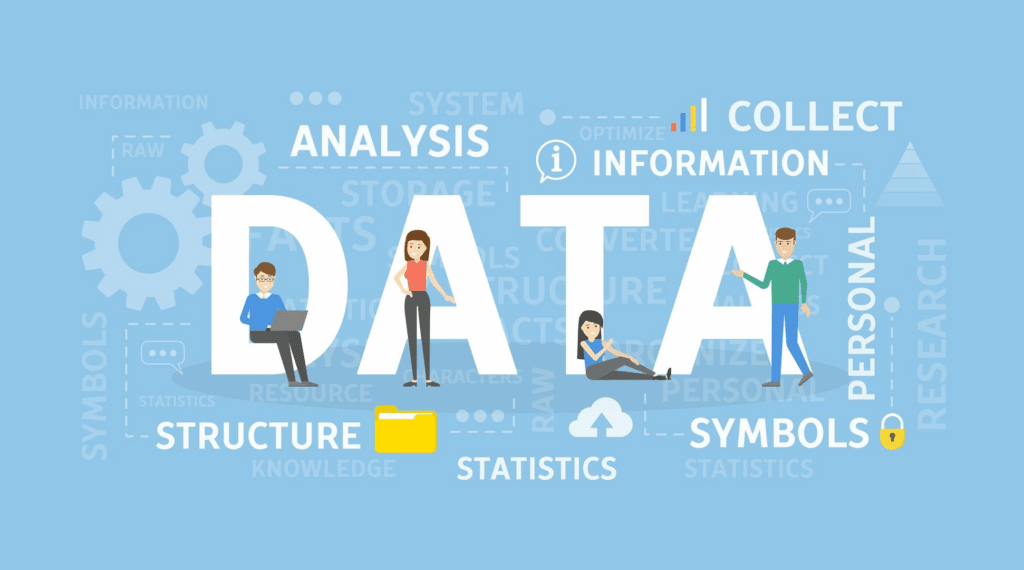Data is the most valuable asset any business can have in the digital era. Organizations are slowly realizing the importance of effective B2B data management. However, there is a long way to go. The adage ‘data is the new oil’ has been thrown around too loosely among the B2B community for anyone to take it seriously. As a result, according to a recent McKinsey report, “86% of businesses believe that they can do much better with B2B data management.” There is a massive chunk of valuable data, and businesses must have a B2B data management strategy in place to get the most out of it.
What is B2B Data Management?
Simply put, B2B data management is a well-defined process of storing, collecting, managing, and safeguarding customer data. Companies can use various data management practices to strategically analyze and utilize that data to understand their customer preferences and buyer personas.
For long, businesses were under the impression that ‘storing customer data is equivalent to having a data strategy’, but that was pre-big data. There even was a time when B2B data management was considered equivalent to having a CSV file in order. Those were simpler times. But thankfully, we do not live in those times anymore. In the current world, where by 2025, the amount of data generated every day is estimated to reach 463 exabytes globally (World Economic Forum, High Scalability), you will need a lot more than CSV files to manage data. As a good start towards an effective B2B data management strategy, businesses must:
- Organize their customer data
- Invest in a Good CRM system
- Automate Tasks with A CRM System
- Undertake regular CRM Data Cleansing
The term “bad B2B data quality” or just “bad data” has resulted in a massive waste of time and resources, increased email bounces, unanswered calls, etc. All of which can hurt any brand in the world. If you do not want that for your brand, B2B data management is highly imperative.
What are the Components of B2B Data Management?
There are eight important areas included in end-to-end B2B data management strategy. These eight components of B2B data management come together to deliver efficient and effective high-quality data to aid accurate decision-making.
Data Architecture
Data architecture defines how data is collected, integrated, transformed, stored and used for business processes. This helps in understanding the source and form of data collected and predict its reliability and usability.
Data Modeling
Data modeling defines the order of data for use and analysis for business processes. It focuses on creating consistent and structured data that makes it easy to understand the scope of the data and eliminate confusion.
-
Data Administration
Data administration looks after managing data to ensure its availability anytime it is required. It is crucial to ensure consistency in terms of data storage, design, quality and security to optimize the use of business data.
-
Data Quality
Data quality in B2B data management plays a vital role in ensuring that the data is fit for business use. It ensures that the data is reliable and accurate and can be used for making data-driven business decisions.
-
Data Integration
Data integration is about consolidating data into a single place to make it convenient to view, analyze and use. It assembles data from various disparate sources systematically and provides a unified view.
-
Data Analytics
Data analytics is the science of analyzing raw data to draw business insights about customers, buying behaviors and market trends. These insights help in designing business strategies to optimize outcomes.
-
Data Security
Data security prevents unauthorized user access to business data and information assets. It prevents data from corruption, duplication, online theft, breaches and other destructive forces.
-
Data Governance
Data governance is a principled approach to ensure that the data is compliant and used properly throughout the organization. It forms various policies and processes to control how data is used and managed.
What Are the Benefits of B2B Data Management
The benefits of effective B2B data management are immense, more so for sales and marketing teams. Once they have access to reliable, accurate and secure datasets, they can understand customer needs, plan their campaigns and improve business outcomes.
1. Creating Ideal Customer Profile (ICP)
Once you have the enriched data with all the information about your customers, their problems, expectations and buying behavior, you can personalize your marketing campaigns to appeal to their needs. This helps you optimize your resources, reduce the sales cycle and increase business ROI.
2. Make Data-driven Business Decisions
The outcome of effective B2B data management often results in reliable and accurate business data. This data can be used to draw valuable market insights that will further aid the data-driven decision-making process. This also helps you know the current market trends and predict the near-future trends to be ready.
3. Increase Customer Engagement and Loyalty
Once you know what your customers want and you address their pain points with your products and services, they find it easier to trust your brand. Providing relevant content and information to educate them leads to increased customer engagement.
4. Enhanced Demand Gen and Lead Gen
Accurate data forms the basis of your demand gen and lead generation strategies.
B2B data management eventually helps you understand your target audience better and personalize your sales and marketing campaigns. This translates into a positive brand image, increased engagement and trust and more sales.
Why Businesses must have a B2B Data Management Strategy?
On its own poor data management can have a severe impact on the performance of the whole organization. But if we are to pinpoint, the sales and the marketing departments have the most volatile impact of bad B2B data or data management in general. With almost all the businesses adopting digital as their primary mode of communication, marketing, and work in general, how they leverage the data they possess holds the key to their success for the foreseeable future. So, let us look at some benefits that having a B2B data management strategy brings with it and why businesses need it more than they think they do.
Market Segmentation
Proper market segmentation can have compounding effects on any business’ growth, especially when you consider that 95% of companies struggle with unstructured data (Forbes). With no proper data management or B2B consumer insights to power your CX strategies, you are as good as working in the dark. If higher conversion rates and exceptional customer experience are your business goals, you need to derive insights from your consumer data, and devoid of a data management strategy, that is just impossible.
Making Data Accessible
Gartner found that 50% of all marketing decisions lack factual data to back them up. The lack of access to evocative business data results in conclusions based purely on hunches instead of factual data. This is why you need to give business users access to the data they need to build and validate their customer interaction/experience strategies. Unfortunately, it is easier said than done, but it can be done as a business with proper coherence between the IT and relevant teams. And must be done.
Making Data Actionable
Having customer data is one thing – deriving actionable insights from it is another. Even the biggest of organizations fail to extract any actionable insights from their B2B databases. With a proper B2B data management strategy, you will be able to extract customer insights to engage with your prospects throughout their multi-step customer journey. You can also create real-time customized experiences for better engagement.
Conclusion
There is no denying the fact that enterprise data warehouses (EDW) and data lakes are a great option for storing your customer data. But the data there remains in an unrefined form, which is of no use to your business growth. With robust B2B data management strategies, you can transform the unrefined data into accurate, relevant, and reliant data points. These data points can then be used to design marketing campaigns, develop attributes, and orchestrate customer journeys to fuel business growth and achieve business goals.
For comprehensive b2b data management solutions or a free data audit, reach out to Datamatics Business Solutions Ltd.

James Libera



